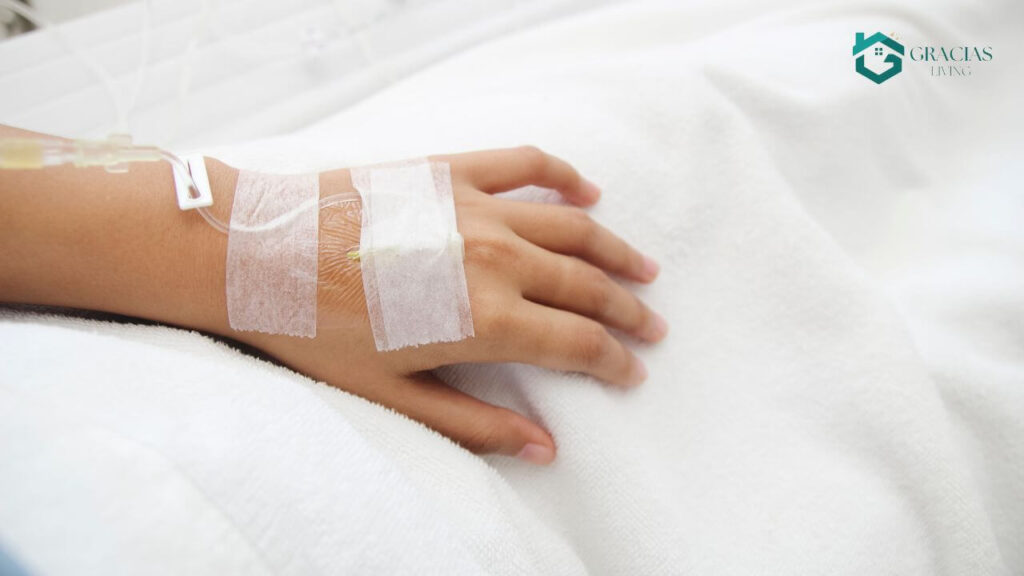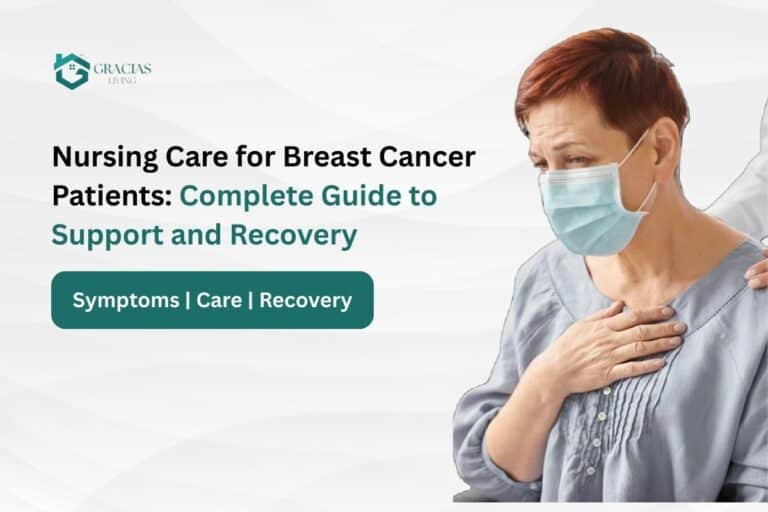Post-hospital recovery care is a crucial aspect of healthcare aimed at helping individuals recuperate and regain their health after being discharged from the hospital.
This type of care ensures that patients receive the necessary support and attention as they transition from hospitalization back to their homes or other care settings.
It involves various services, including medical monitoring, rehabilitation, personal assistance, and emotional support, all tailored to the individual’s specific needs and circumstances.
By providing comprehensive care and guidance during the critical post-hospital period, post-hospital recovery care is vital in facilitating a smooth and successful recovery process, reducing the risk of complications, and improving overall health outcomes.

Post Hospital Recovery Care: Choosing Between Care at Home or Care-home.
Deciding between care at home or in a care home depends on several factors, including the individual’s medical needs, personal preferences, and available support.
Here’s a comparison to help make the decision:
Care at Home:
- Comfort and Familiarity: Staying at home allows the individual to remain in a familiar environment, surrounded by personal belongings and memories, which can promote comfort and well-being.
- Independence: Home care promotes independence, allowing the individual to maintain control over their daily routine and lifestyle choices.
- Personalized Care: Care at home can be tailored to the individual’s specific needs and preferences, ensuring personalized attention and support.
- Family Involvement: Family members can actively participate in the care process, providing emotional support and assistance with daily tasks.
- Flexibility: Home care offers flexibility in scheduling and care arrangements, allowing adjustments based on the individual’s changing needs.
Care Home:
- 24/7 Support: Care homes provide round-the-clock care and supervision by trained staff, ensuring that individuals receive assistance whenever needed.
- Specialized Care: Care homes offer specialized care for various needs, including medical care, rehabilitation, and memory care for individuals with dementia.
- Socialization: Care homes provide opportunities for social interaction and engagement with peers, reducing loneliness and isolation.
- Safety and Security: Care homes are equipped with safety features and emergency response systems to ensure the well-being and security of residents.
- Access to Amenities: Care homes often offer amenities such as meals, housekeeping, and recreational activities, reducing the burden of daily chores on residents.

Factors to Consider:
- Medical Needs: Individuals with complex medical needs may require the 24/7 supervision and specialized care available in a care home.
- Support System: Consider the availability of family members and other support networks to provide care at home.
- Cost: Compare the costs of home care services and care home fees, considering factors such as insurance coverage and long-term financial implications.
- Preference: Consider the individual’s preference and comfort level with staying at home versus moving to a care home.
- Safety: Assess the safety of the home environment and whether modifications are needed to accommodate the individual’s mobility or health needs.
Ultimately, the decision between care at home and in a care home should prioritize the individual’s safety, well-being, and quality of life.
Discussing options with healthcare providers, family members, and individuals can help make an informed decision based on their unique circumstances.

Post Hospital Recovery Care Focuses On :
- Continued Medical Attention: Post-hospital recovery care ensures that patients receive ongoing medical attention, including medication management, wound care, and monitoring of vital signs to prevent complications.
- Rehabilitation Services: Many patients require rehabilitation services, such as physical therapy, occupational therapy, or speech therapy, to regain strength, mobility, and independence after surgery or illness.
- Pain Management: Effective pain management is essential for patients recovering from surgery or injuries. Post-hospital care providers help manage pain through medication, therapy, and other techniques to improve comfort and mobility.
- Assistance with Daily Activities: Patients may need assistance with daily activities like bathing, dressing, and meal preparation while they recover. Post-hospital care providers offer support to ensure patients’ needs are met.
- Nutritional Support: Proper nutrition is vital for healing and recovery. Post-hospital care providers offer dietary guidance and may provide meal preparation services or nutritional supplements as needed.
- Monitoring and Education: Patients and their families receive education on managing their condition, recognizing signs of complications, and following prescribed treatments to facilitate a smooth recovery process.
- Emotional Support: Recovering from illness or surgery can be emotionally challenging. Post-hospital care providers offer emotional support and encouragement to patients and their families throughout the recovery process.
- Coordination of Care: Post-hospital care providers work closely with hospitals, doctors, and other healthcare professionals to ensure a seamless transition from hospital to home or other care settings.
Overall, post-hospital recovery care plays a vital role in helping patients recover safely and effectively, improving outcomes, and reducing the risk of readmission to the hospital.

Taking post-hospital recovery care is crucial for several reasons:
- Optimal Healing: After a hospital stay, the body needs time to heal properly. Post-hospital recovery care provides the necessary support and resources to facilitate this healing process, ensuring that individuals recover as quickly and efficiently as possible.
- Reduced Risk of Complications: Without proper care and monitoring, individuals are at a higher risk of developing complications such as infections, blood clots, or worsening of existing conditions. Post-hospital care helps mitigate these risks by providing medical supervision and intervention as needed.
- Promotes Independence: Post-hospital care focuses on restoring individuals’ independence by providing rehabilitation services, personal assistance, and guidance on managing daily activities. This support empowers individuals to regain their ability to perform tasks on their own, improving their quality of life.
- Prevents Readmission: By addressing medical needs and providing ongoing support, post-hospital care helps prevent complications that could lead to hospital readmission. This not only saves healthcare costs but also reduces the physical and emotional stress associated with repeat hospital stays.
- Tailored Support: Post-hospital care is personalized to meet the unique needs of each individual, taking into account their medical condition, treatment plan, and personal preferences. This tailored approach ensures that individuals receive the specific care and assistance they require for a successful recovery.
- Enhances Well-being: Recovery from illness or surgery can be physically and emotionally challenging. Post-hospital care offers emotional support, pain management, and assistance with daily activities, promoting overall well-being and reducing stress during the recovery process.
- Family Peace of Mind: Knowing that their loved ones are receiving professional care and support can give peace of mind to family members. Post-hospital care providers keep families informed about their loved one’s progress and guide how they can support the recovery process.
- Faster Recovery: With the comprehensive support and resources provided by post-hospital care, individuals can recover faster and return to their normal activities sooner. This allows them to resume their daily routines, maintain their social connections, and enjoy a higher quality of life.
Conclusion:
After leaving the hospital, getting help to recover both emotionally and physically is important.
Research post-hospital care providers in the area. This can include home healthcare agencies, rehabilitation centers, or assisted living facilities that offer short-term care. Consider factors such as reputation, services offered, and proximity to home.
Schedule a meeting with the post-hospital care providers to discuss the individual’s medical history, current condition, and treatment plan. This allows the care team to develop a personalized care plan tailored to the individual’s needs.
Coordinate the transition from the hospital to the post-hospital care setting. This may involve arranging transportation, ensuring that necessary medical equipment or supplies are available, and communicating with the care provider about the individual’s needs and preferences.
Schedule a meeting with the post-hospital care providers to discuss the individual’s medical history, current condition, and treatment plan. This allows the care team to develop a personalized care plan tailored to the individual’s needs.
Post Hospitalisation Recovery care makes sure we’re okay both inside and out. It helps us feel better and stronger.
This care gives us support with our feelings and also with things like bathing and eating. When we have both emotional and physical support, it’s easier to get better and feel good again. So, Post Hospitalisation Recovery is about getting help with both our hearts and bodies to help us heal and feel happy.




